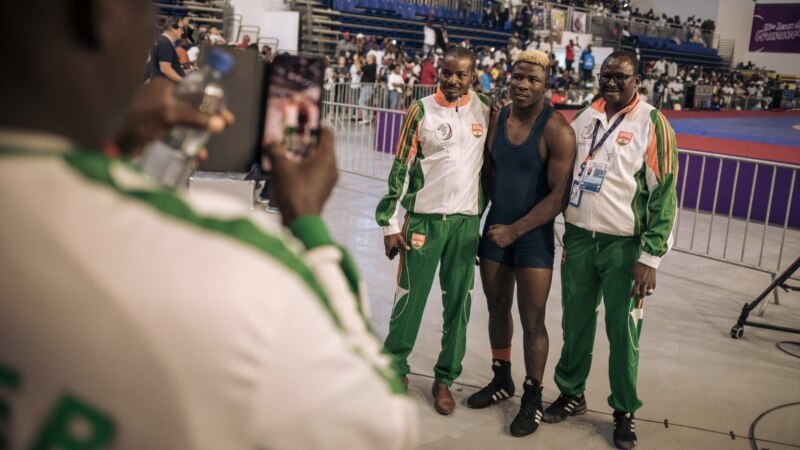Putsch Throws Niger Team at Francophone Games Into Disarray

[ad_1]

Nigerien participants in the Francophone Games, which have kicked off in the Democratic Republic of the Congo’s capital, have been left struggling after a putsch in their home country last week.
Drawing athletes and artists from mostly French-speaking states, the games are being held for the first time in DRC’s capital, Kinshasa, the world’s largest French-speaking city.
The event, which features athletic and cultural contests, began in the central African metropolis on Friday.
But just two days prior, army officers had appeared on television screens in Niger to announce the overthrow of President Mohamed Bazoum and the closure of the Sahel state’s borders.
Ibrahim Mahamane, who heads Niger’s cultural delegation to the games, said the putsch had thrown the team into disarray.
Some participants had planned to arrive in Kinshasa on the day of the coup, or shortly afterward.
“Due to certain circumstances prevailing in the country, the entire delegation was unable to travel, and some remained in Niger,” he said.
For example, sculptor Adamou Tchiombiano managed to fly to the DRC in time, but the giraffe sculpture made from recycled flip-flops that he was due to exhibit got stuck in Niger.
“It’s put the brakes on my career,” said the artist, who thinks his sculpture was a winner.
Back at work
But the 33-year-old is undaunted. On Sunday, he was hard at work in Kinshasa’s Academie des Beaux Arts, using a chainsaw to shape tropical wood into a new giraffe sculpture, which he aims to finish before the end of the games.
“They’ve welcomed me with open arms. It’s like a family,” said Tchiombiano.
Some Nigerien artwork also turned up in Kinshasa without the accompanying artist, according to Mahamane. And members of a musical group that was due to compete are missing.
With one of the largest teams in the games, the 100-strong Nigerien delegation proudly waved flags during the opening ceremony on Friday.
Niger is due to compete in 10 out of 11 cultural contests and eight out of nine sporting events, according to the delegation.
“It’s hard. We feel the weight of what happened to us,” said Mahamane, referring to the coup.
But, he added, “Niger is still standing and it’s our mission to represent it.”
Safety concerns and standards of facilities have dogged the games in Kinshasa, prompting some delegations to pull out or send reduced teams.
The Canadian province of Quebec, for example, is not participating.
But the Nigeriens are unfazed and uncomplaining, despite their substandard accommodation.
Their building in the so-called Games Village at the University of Kinshasa has patchy electricity and water, for example, and it’s far away from the event facilities, leaving them vulnerable to Kinshasa’s infamous traffic jams.
They experienced a letdown Friday when they were bused away from the opening ceremony straight after their flag parade, missing the opening ceremony’s sound and light show.
“It’s a very big disappointment,” said Mahamane, who wanted to see the show. “But we want the games to succeed. We can overcome all that. We’re used to difficulties.”
Issaka Aissata Ibrah, the head of the Nigerien athletic delegation, was equally upbeat.
“We have 50 athletes. We want 50 medals,” she said. “But medals or no medals, we will have had the merit of representing our country.”
In the courtyard of the Nigerien building in the Games Village, a joyful shout burst from a window.
“It’s one of my wrestlers. The water’s come back,” said Mohamed Manzo, the Nigerien wrestling team’s coach. “He hadn’t had a shower for two days.”
[ad_2]